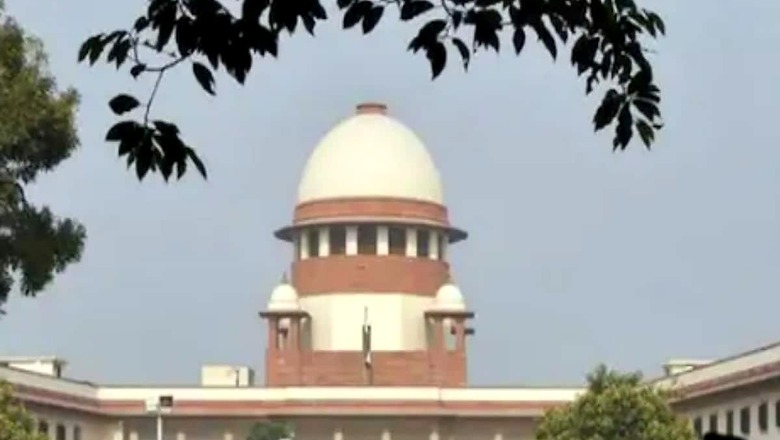
views
A first information report (FIR) is not an encyclopedia which must disclose all the facts and details relating to the offence reported and courts should not go into the merits of the allegations when investigation by the police is in progress, the Supreme Court said on Tuesday. While observing that police must be permitted to complete the probe, the apex court said that high courts must appreciate that speedy investigation is the requirement in the criminal administration of justice and they should be slow in interfering with the criminal proceedings at the initial stage.
A bench headed by Justice D Y Chandrachud noted that it has come across several orders passed by high courts directing not to arrest the accused during the investigation or till the charge sheet is filed. The first information report is not an encyclopedia which must disclose all facts and details relating to the offence reported. Therefore, when the investigation by the police is in progress, the court should not go into the merits of the allegations in the FIR. Police must be permitted to complete the investigation, said the bench, also comprising Justices M R Shah and Sanjiv Khanna.
It would be premature to pronounce the conclusion based on hazy facts that the complaint/FIR does not deserve to be investigated or that it amounts to abuse of process of law, the bench said in its 64-page verdict. The top court delivered the judgement by which it quashed the September last year interim order of the Bombay High Court which had directed that no coercive measures shall be adopted against the accused in respect of an FIR lodged in 2019 on allegations of cheating, forgery and others.
The bench noted that in a given case, there may be allegations of abuse of process of law by converting a civil dispute into a criminal dispute, only with a view to pressurise the accused. It said similarly, in a given case the complaint itself on the face of it can be said to be barred by law.
The allegations in the FIR/complaint may not at all disclose the commission of a cognizable offence, it said, adding, In such cases and in exceptional cases with circumspection, the high court may stay the further investigation. It said at the same time, there may be genuine complaints or FIRs and the police or the investigating agency has a statutory obligation and duty to enquire into the cognizable offences. Therefore, a balance has to be struck between the rights of the genuine complainants and the FIRs disclosing commission of a cognizable offence and the statutory obligation/duty of the investigating agency to investigate into the cognizable offences on the one hand and those innocent persons against whom the criminal proceedings are initiated which may be in a given case abuse of process of law and the process, it said.
In such cases, and only in exceptional cases and where it is found that non-interference would result into miscarriage of justice, the high court, in exercise of its inherent powers under section 482 CrPC and/or Article 226 of the Constitution of India, may quash the FIR/complaint/criminal proceedings and even may stay the further investigation, it said. The bench said even in a case where the high court is prima facie of the opinion that an exceptional case is made out for grant of interim stay of further probe, after considering the broad parameters while exercising the powers under section of the 482 CrPC or under Article 226, it has to give brief reasons why such an interim order is required to be passed. It said the high court should be slow in interfering with the criminal proceedings at the initial stage, that is, when quashing petition is filed immediately after lodging of the FIR or complaint and no sufficient time is given to police to investigate into the allegations.
The bench said it is the statutory right and even the duty of police to investigate into the cognizable offence and collect evidence during the course of investigation. Therefore, passing such type of blanket interim orders without assigning reasons, of not to arrest and/or no coercive steps would hamper the investigation and may affect the statutory right/duty of the police to investigate the cognizable offence conferred under the provisions of the CrPC, the bench said. It noted that where the investigation is stayed for a long time, even if the stay is ultimately vacated, the subsequent probe may not be very fruitful for the simple reason that the evidence may no longer be available. It said in case the accused named in the FIR or complaint apprehends arrest, he has a remedy to apply for anticipatory bail under section 438 of the CrPC.
Read all the Latest News, Breaking News and Coronavirus News here. Follow us on Facebook, Twitter and Telegram.

















Comments
0 comment